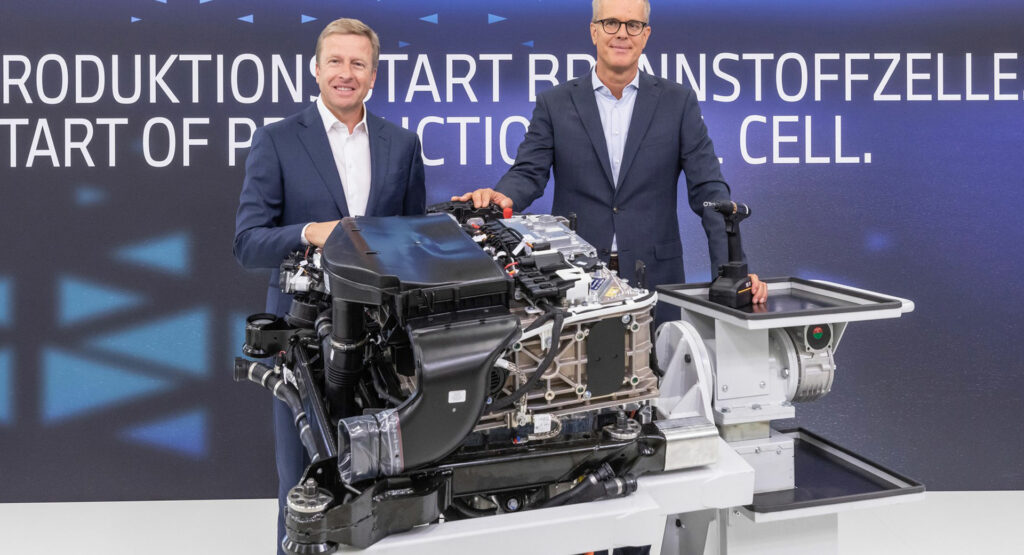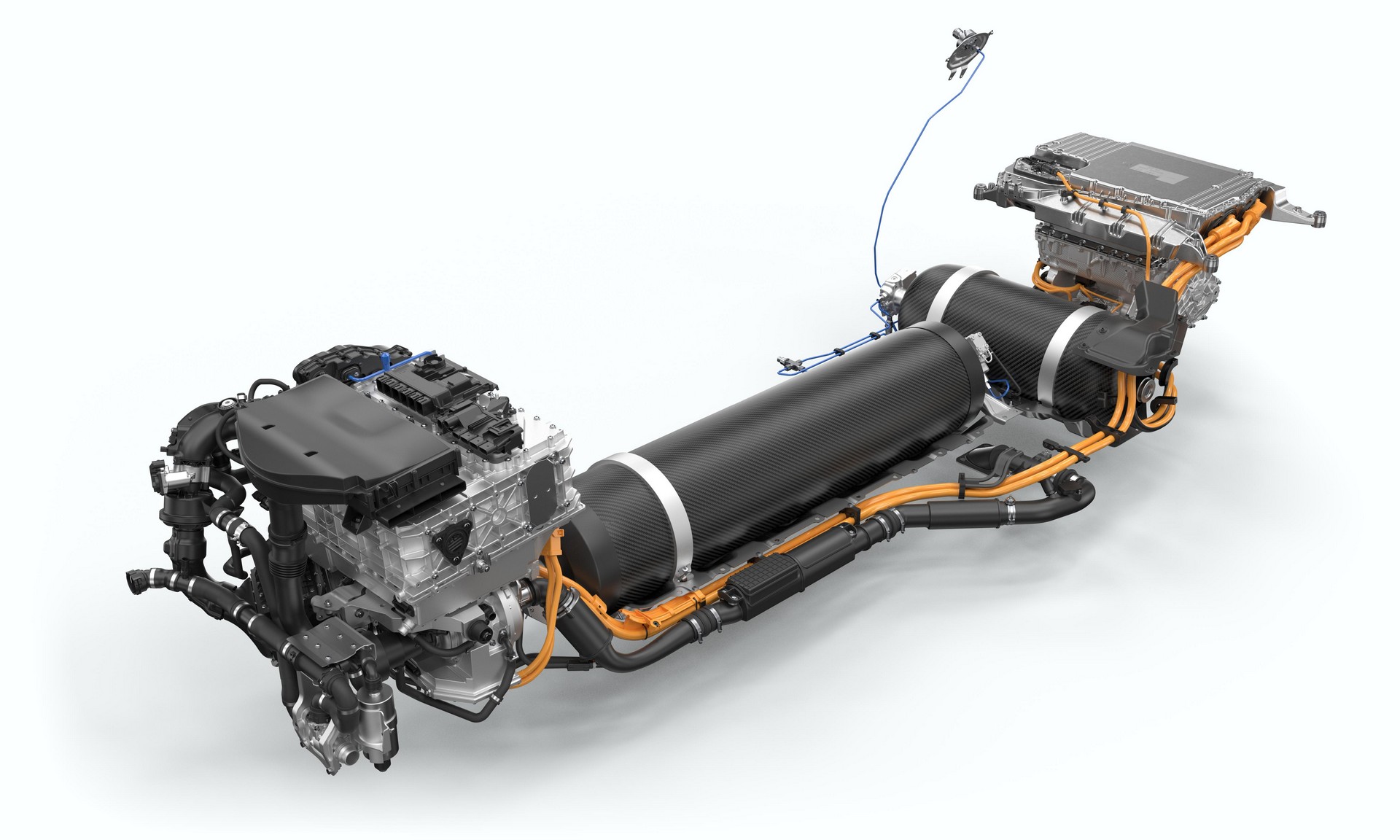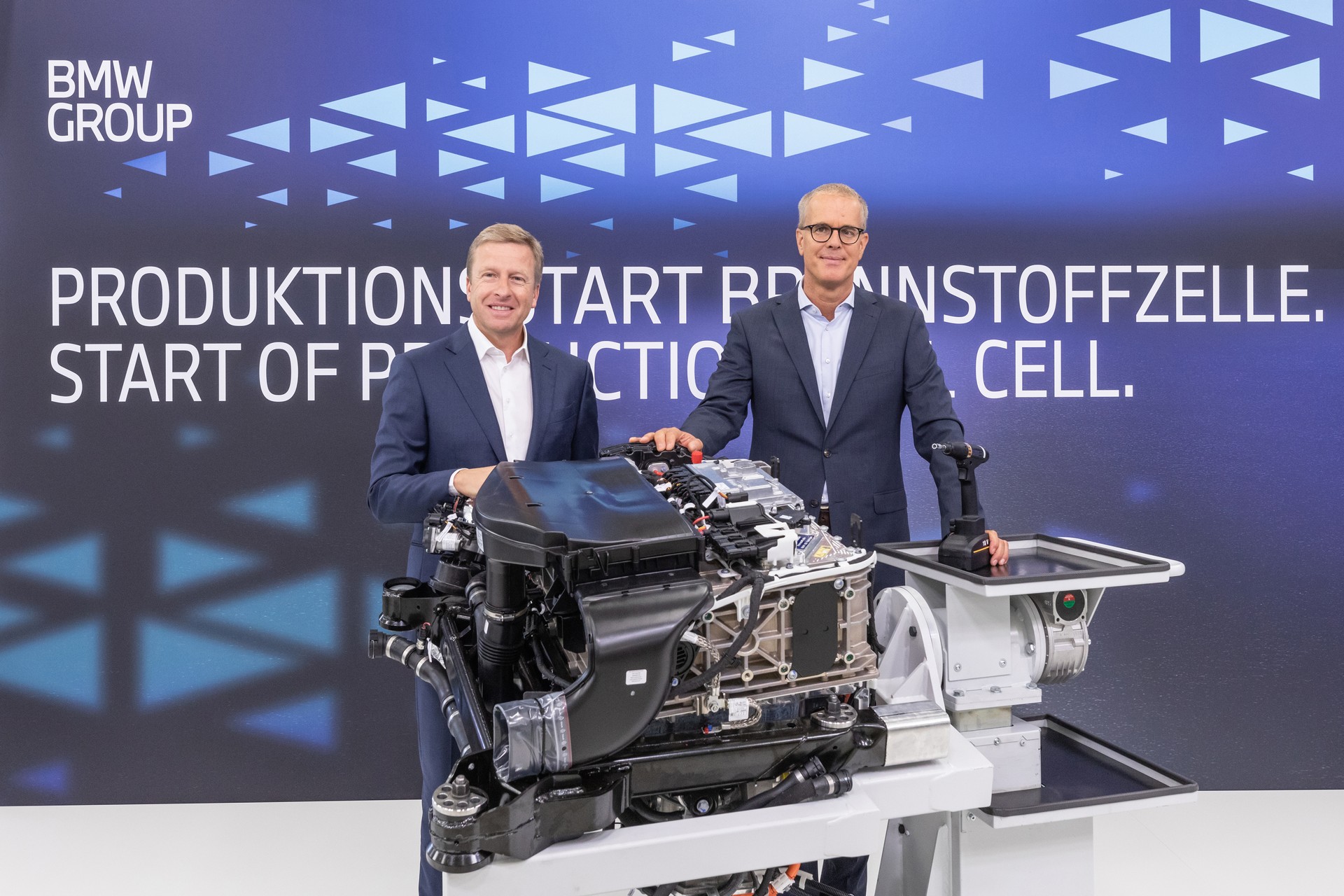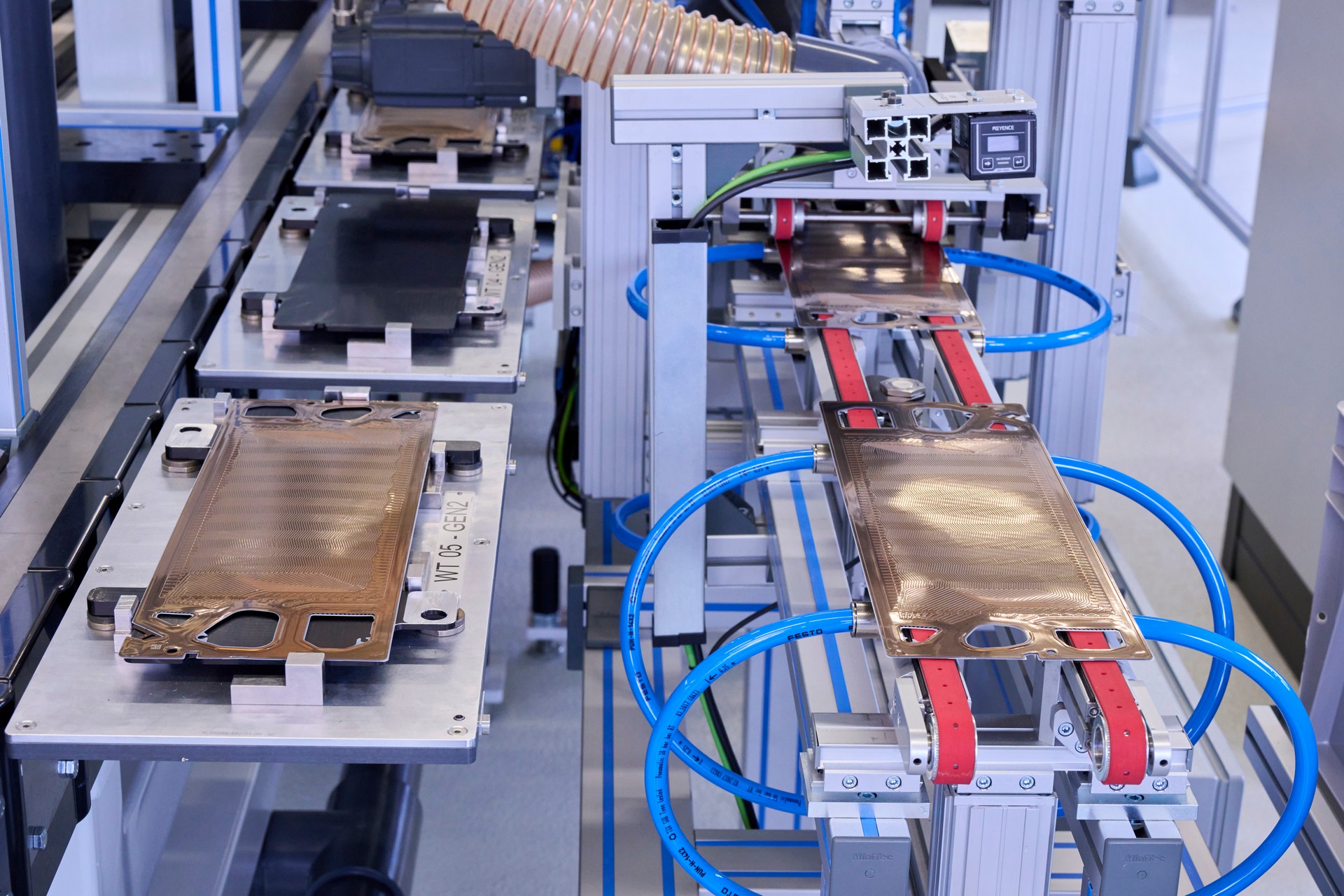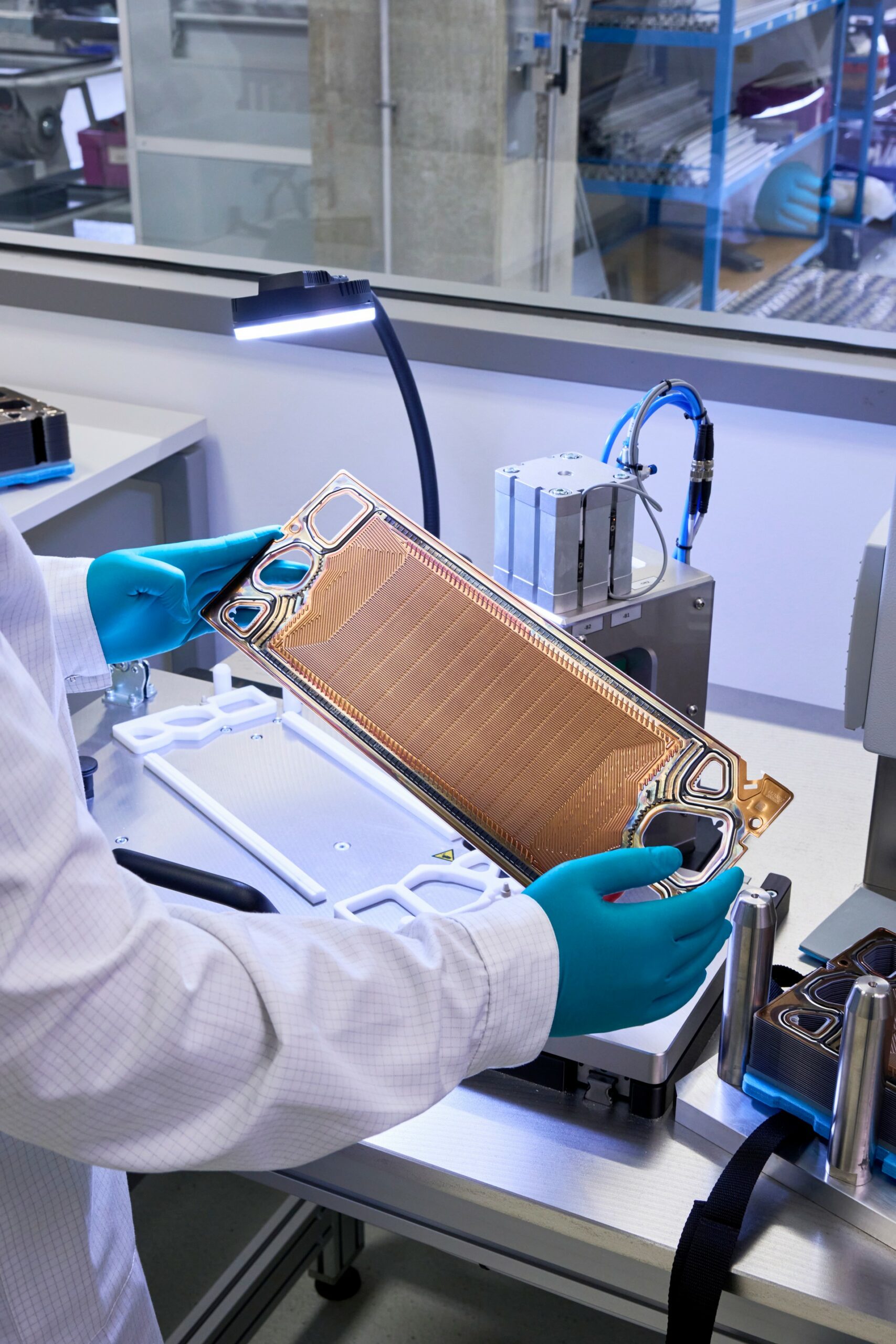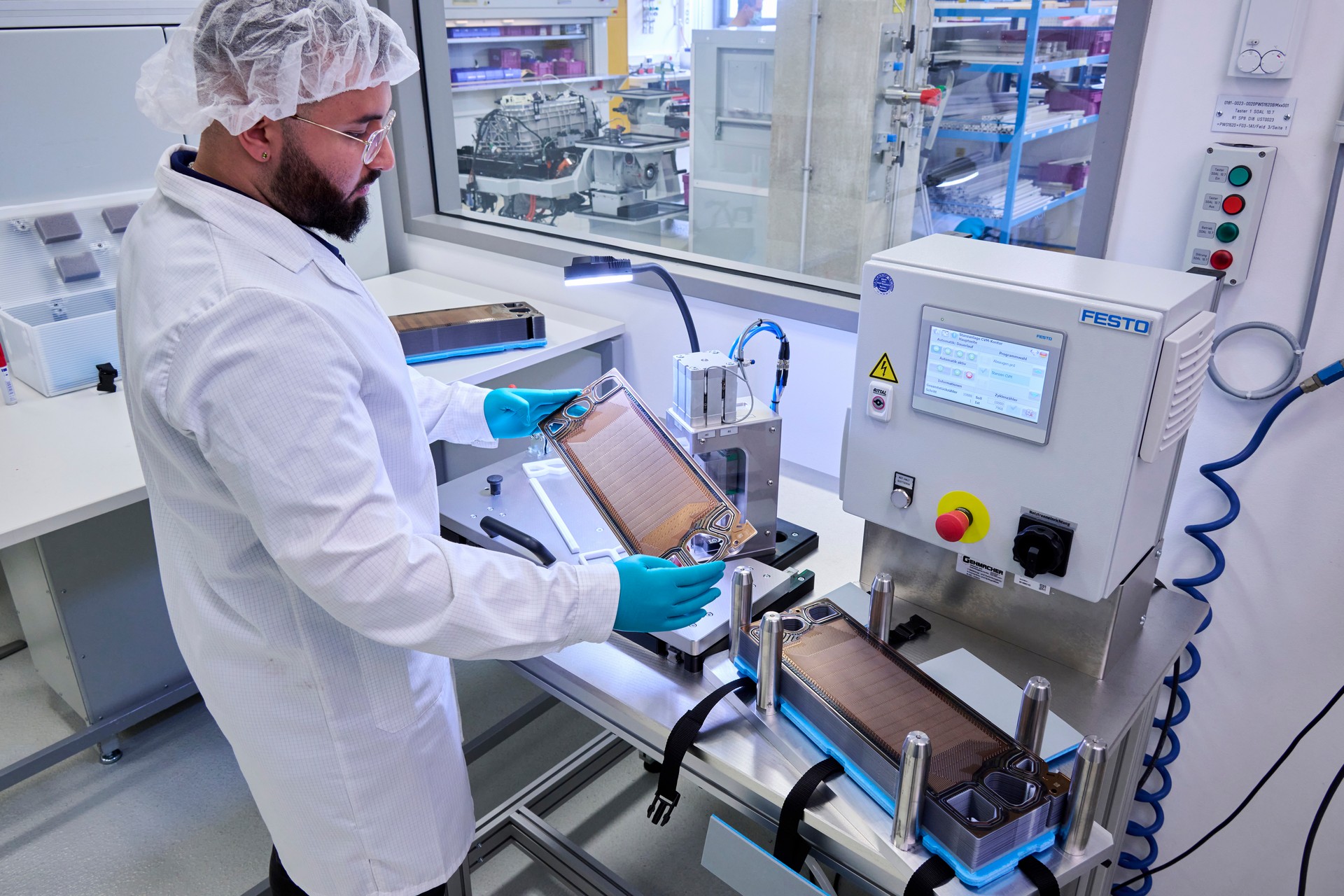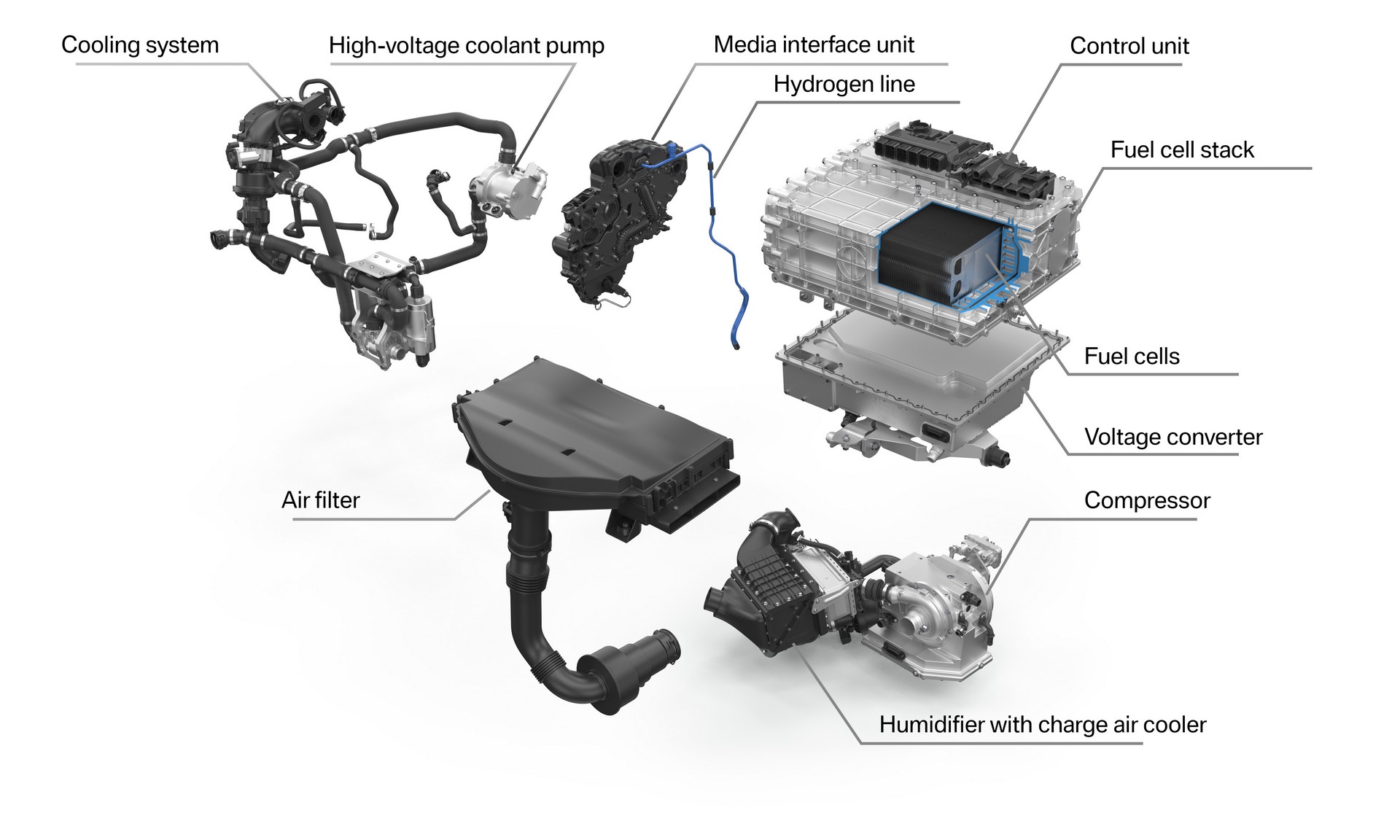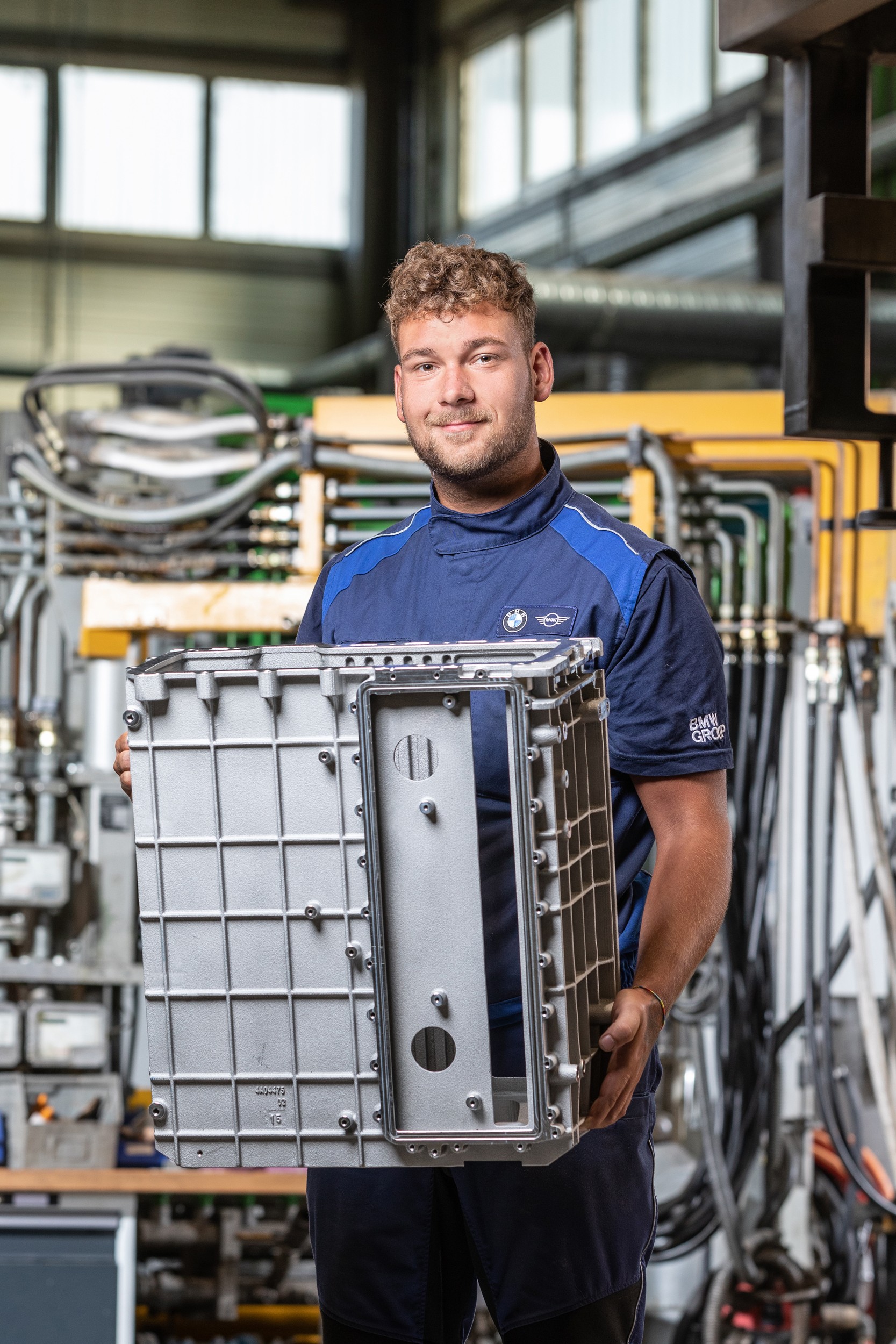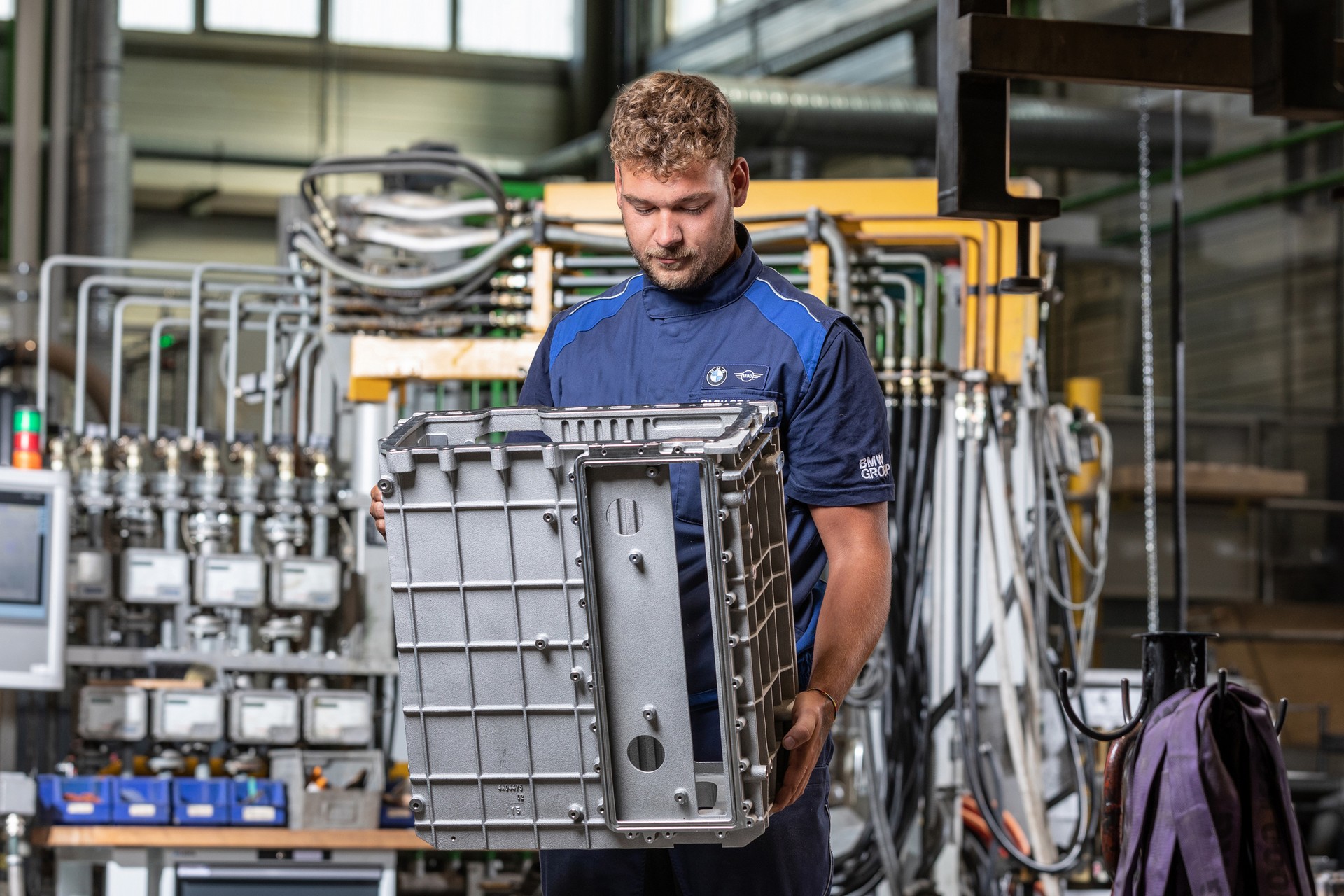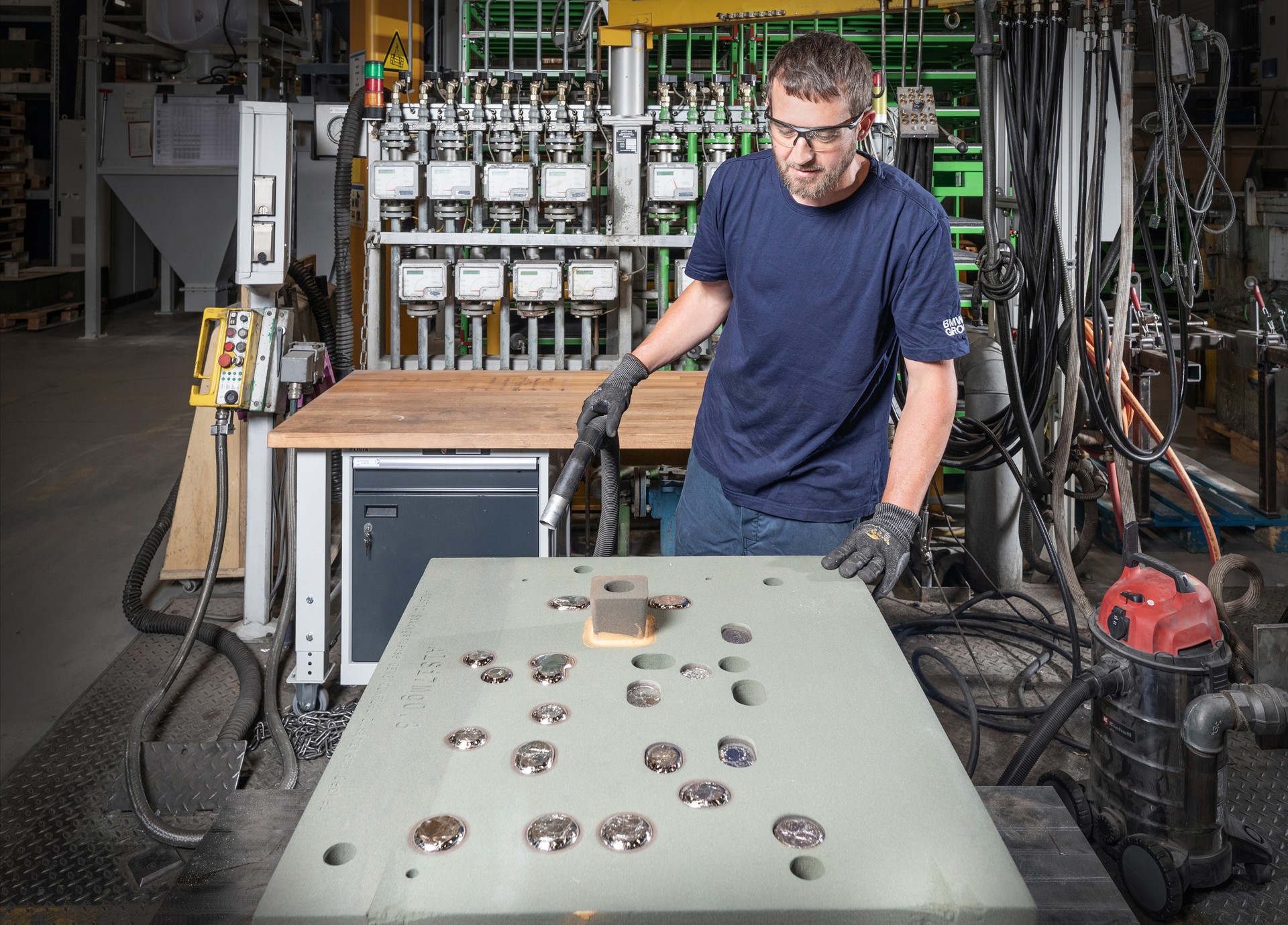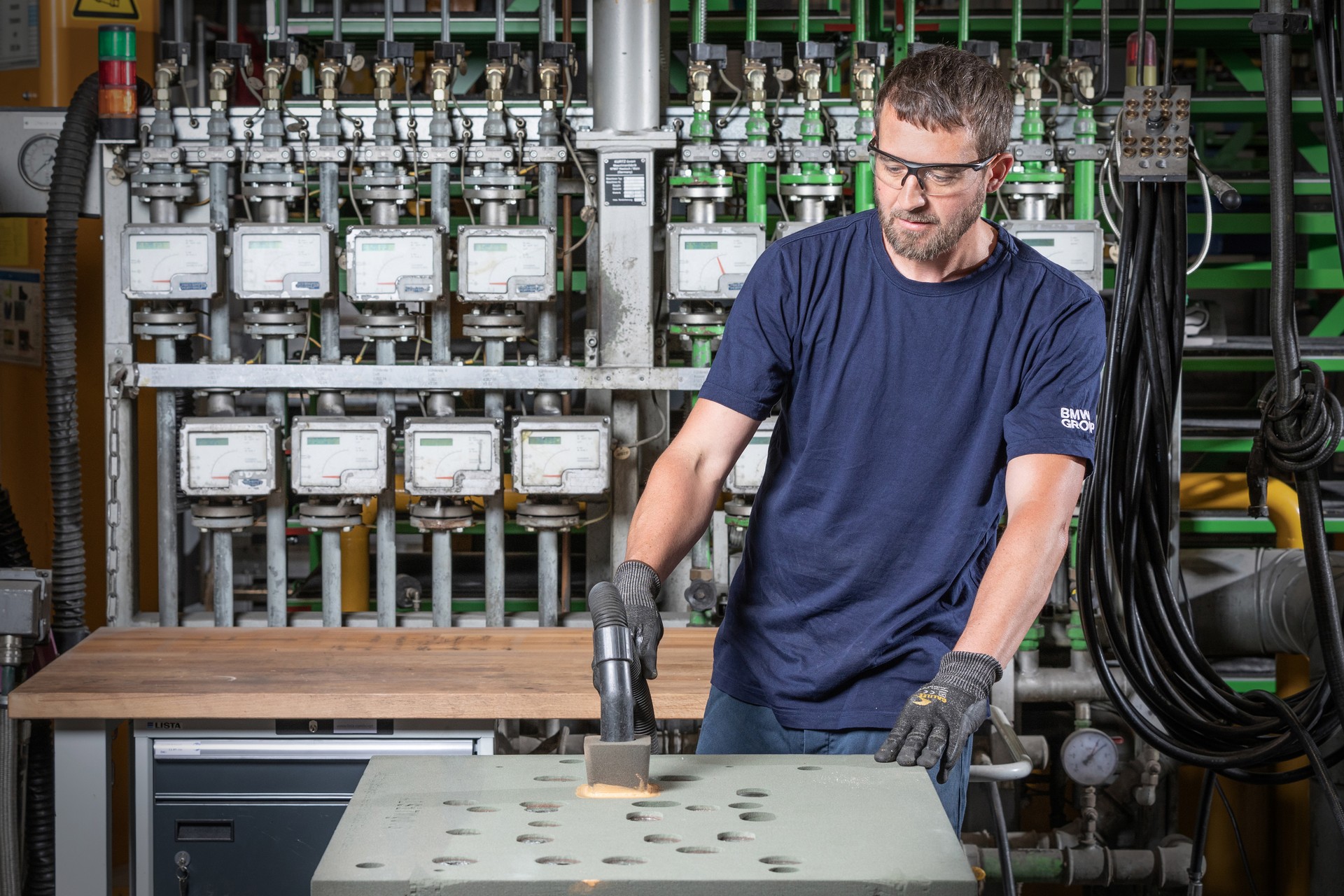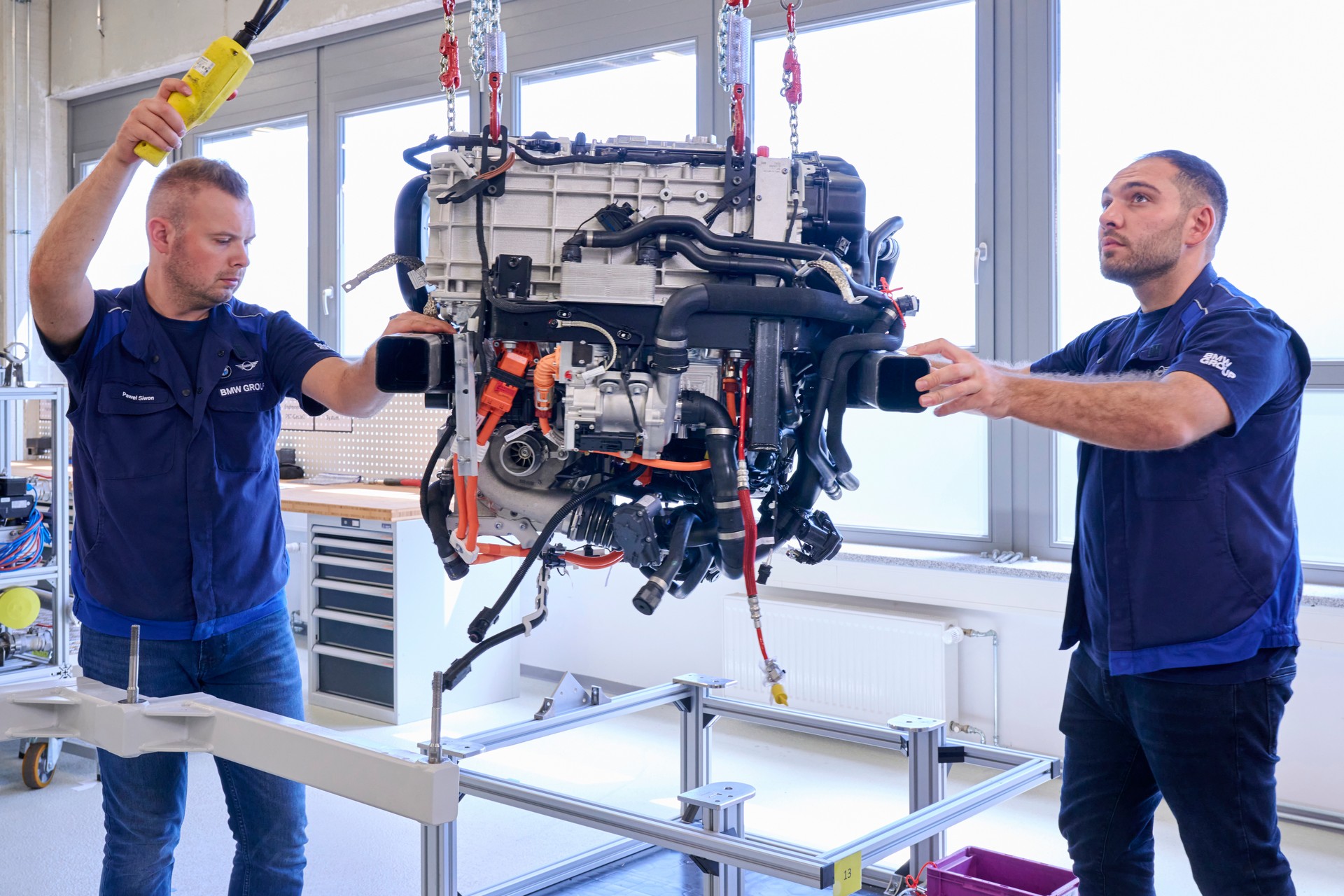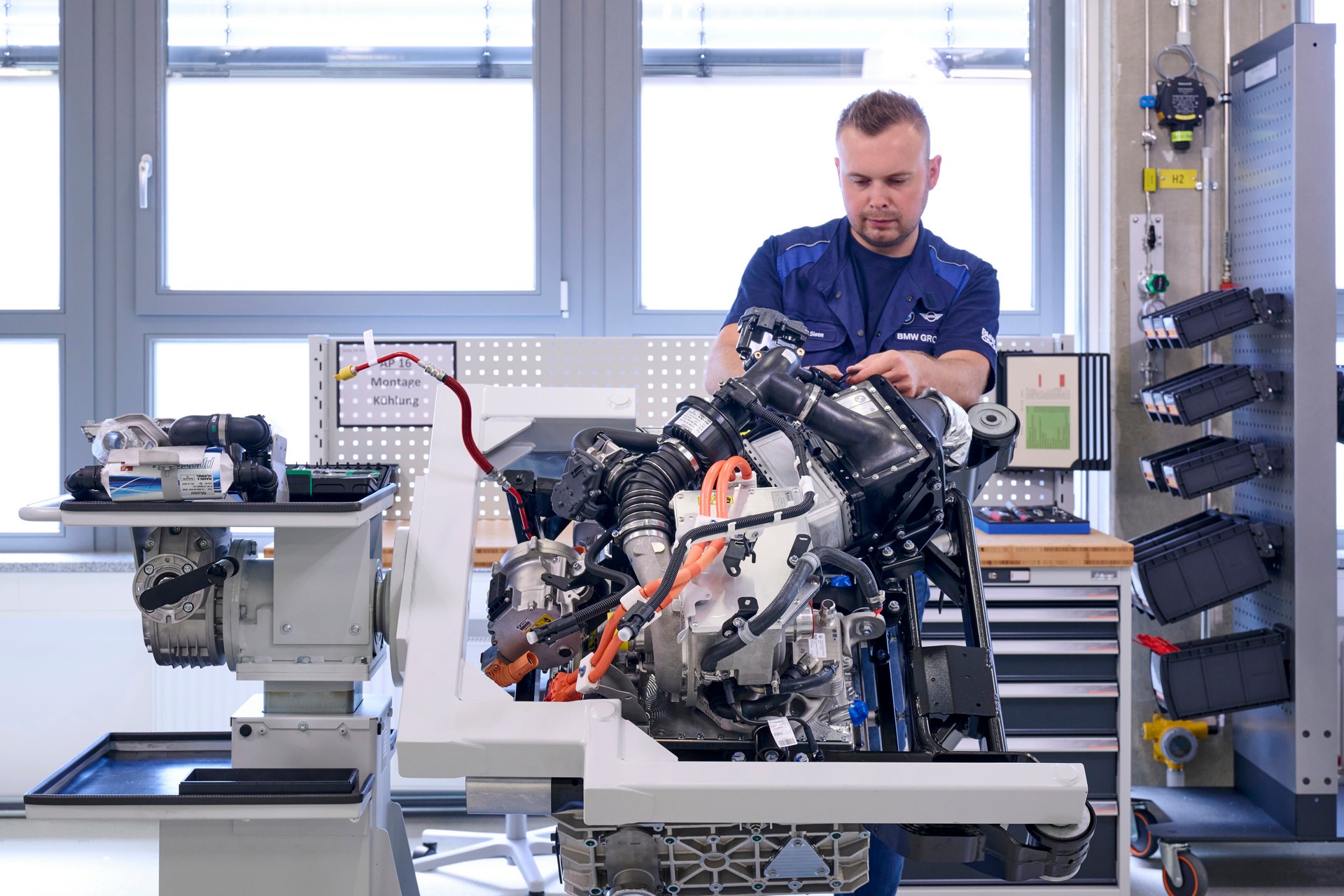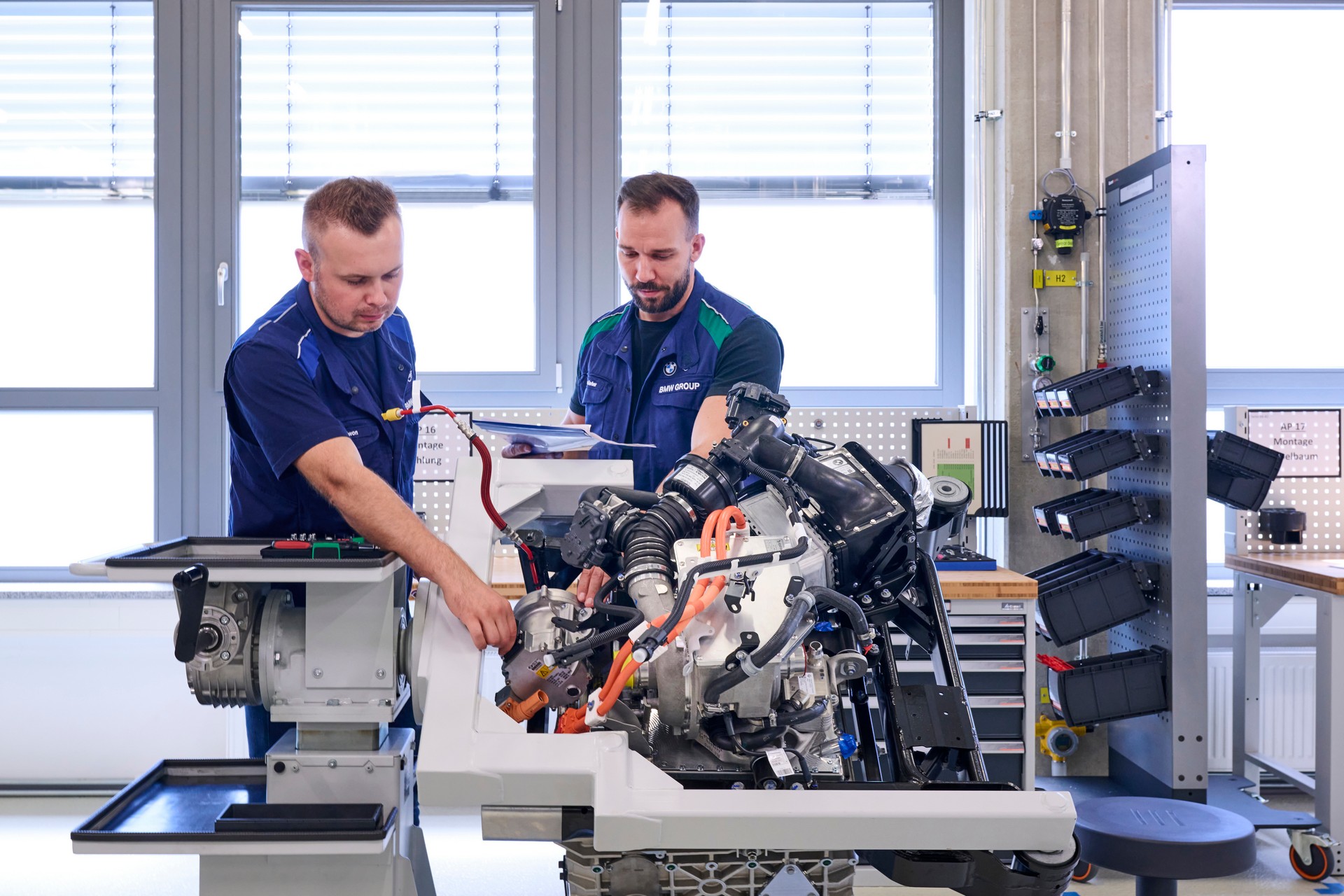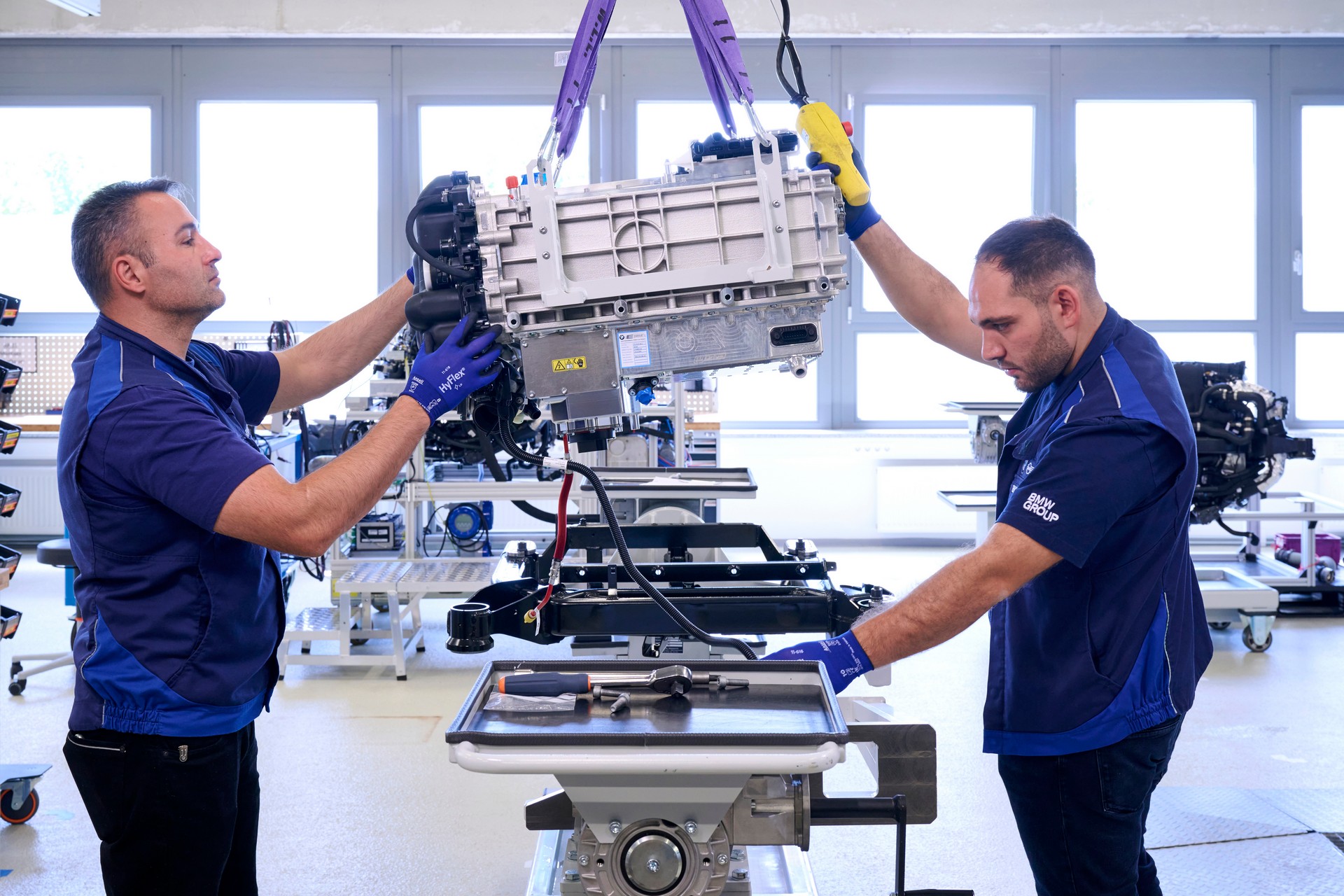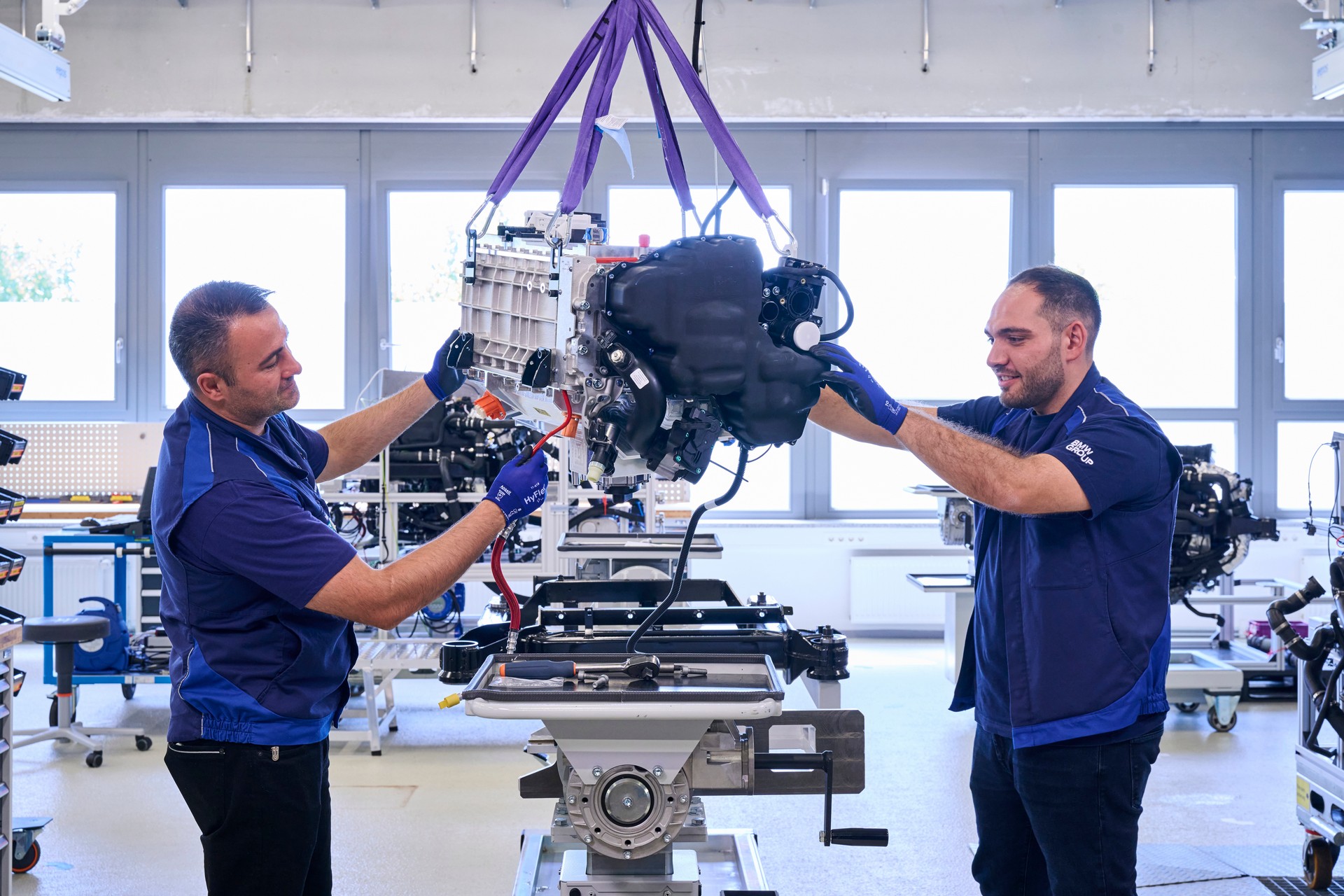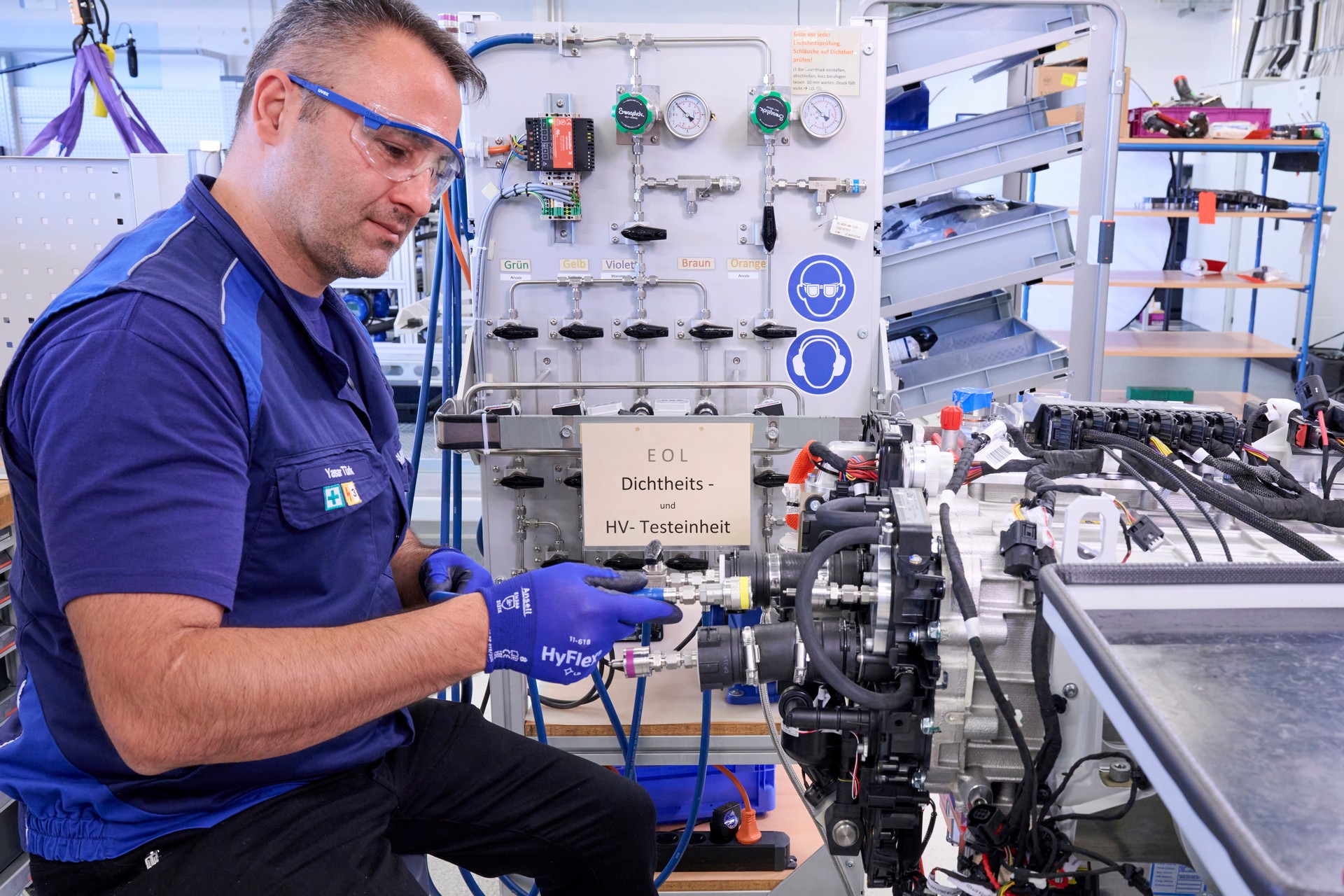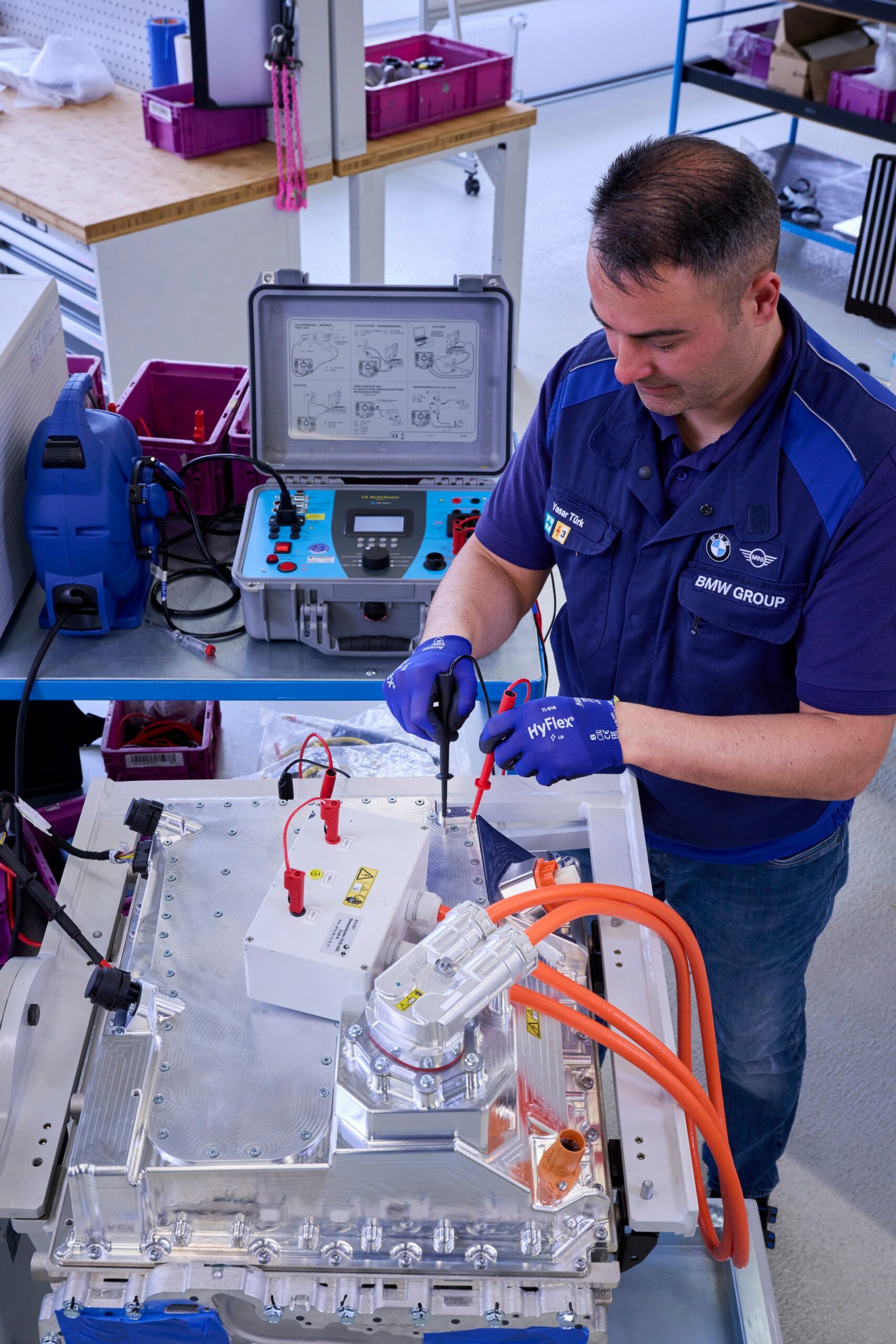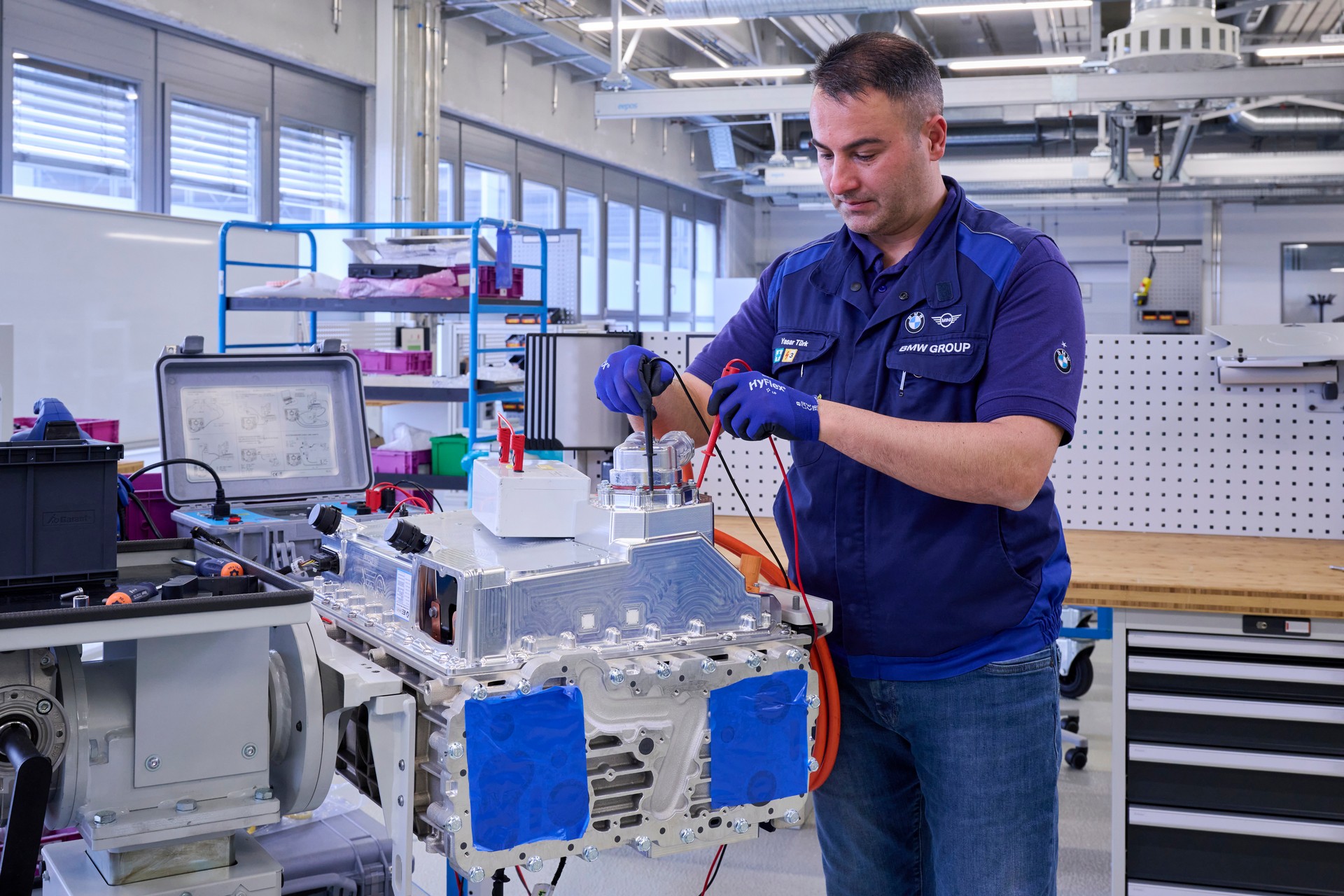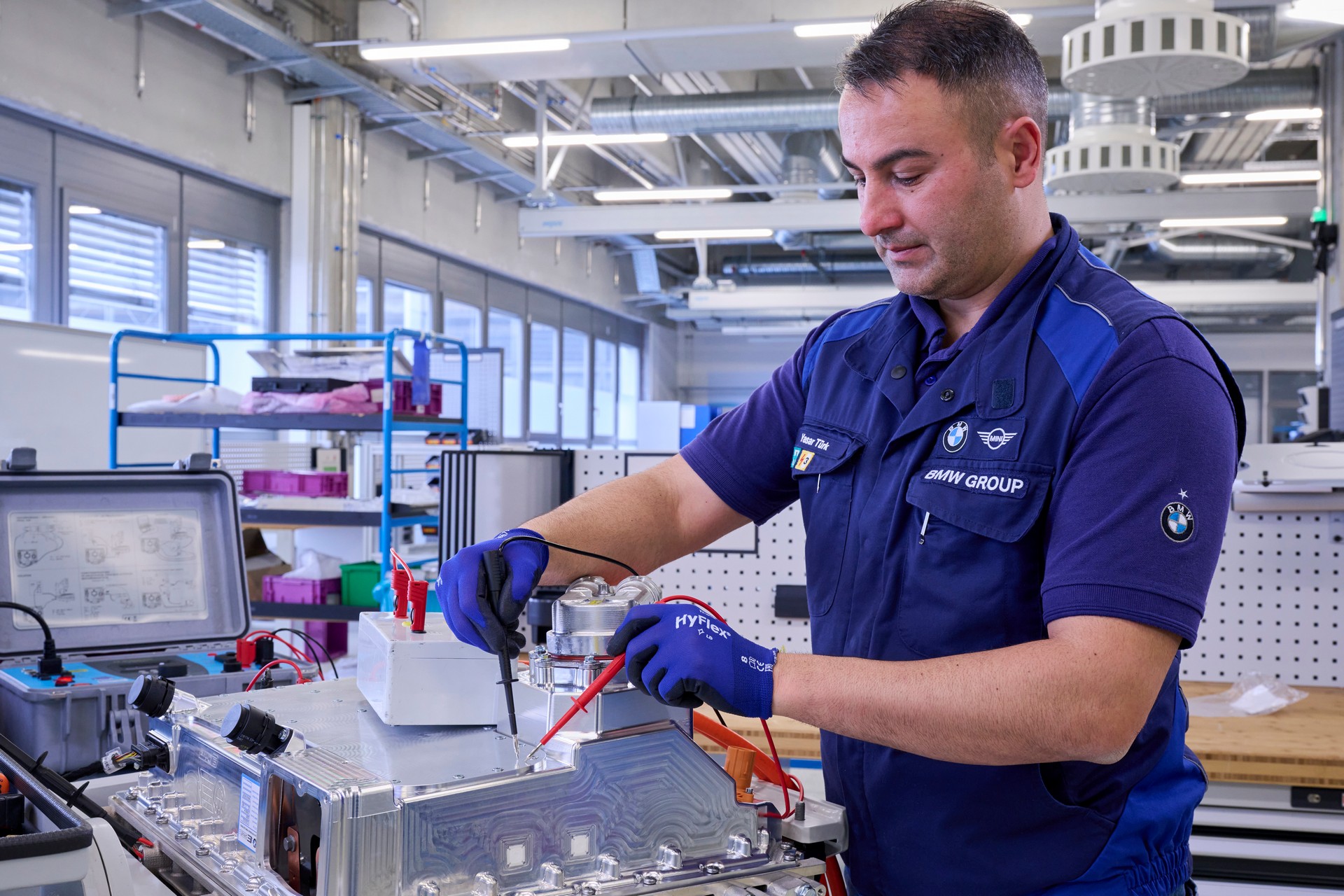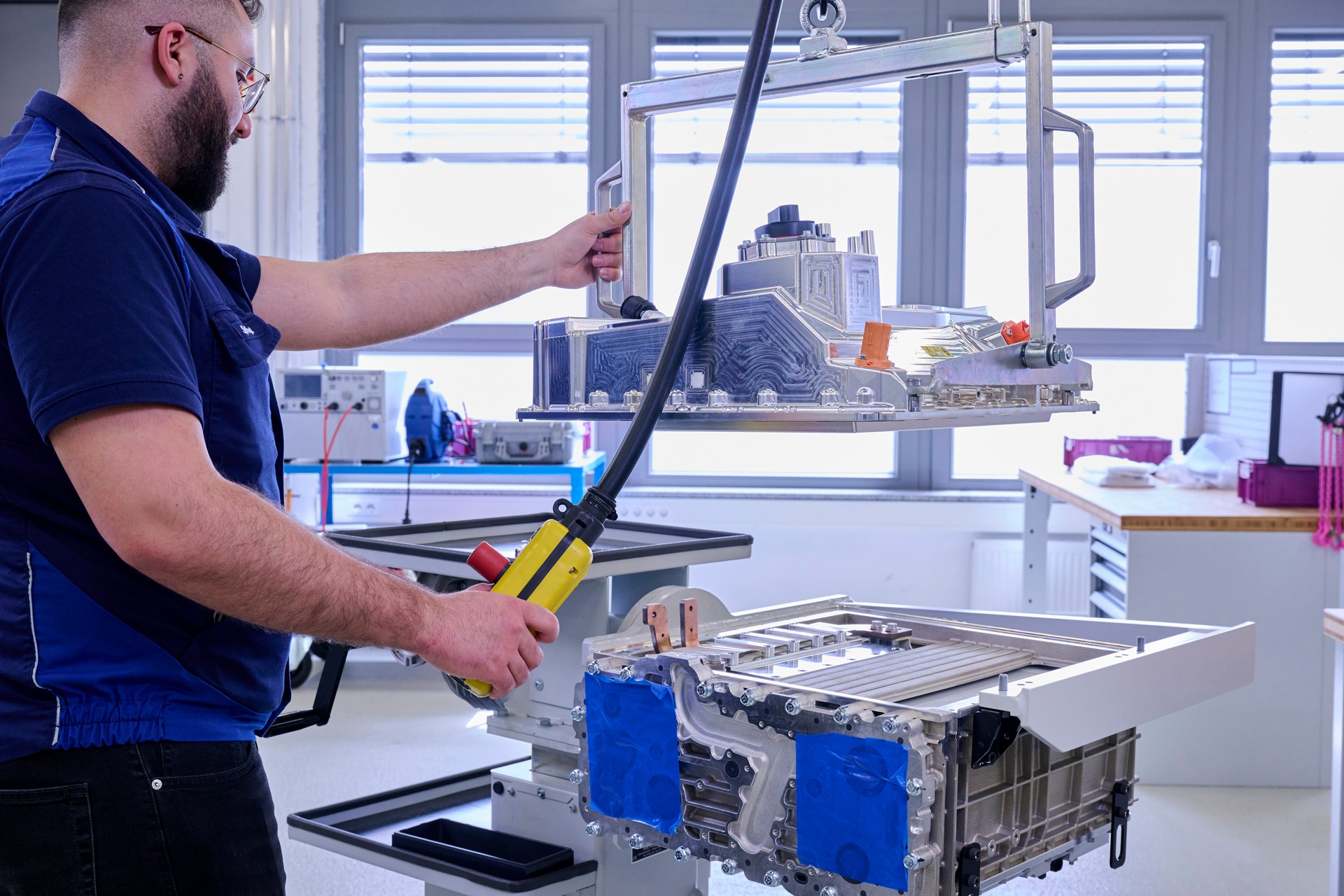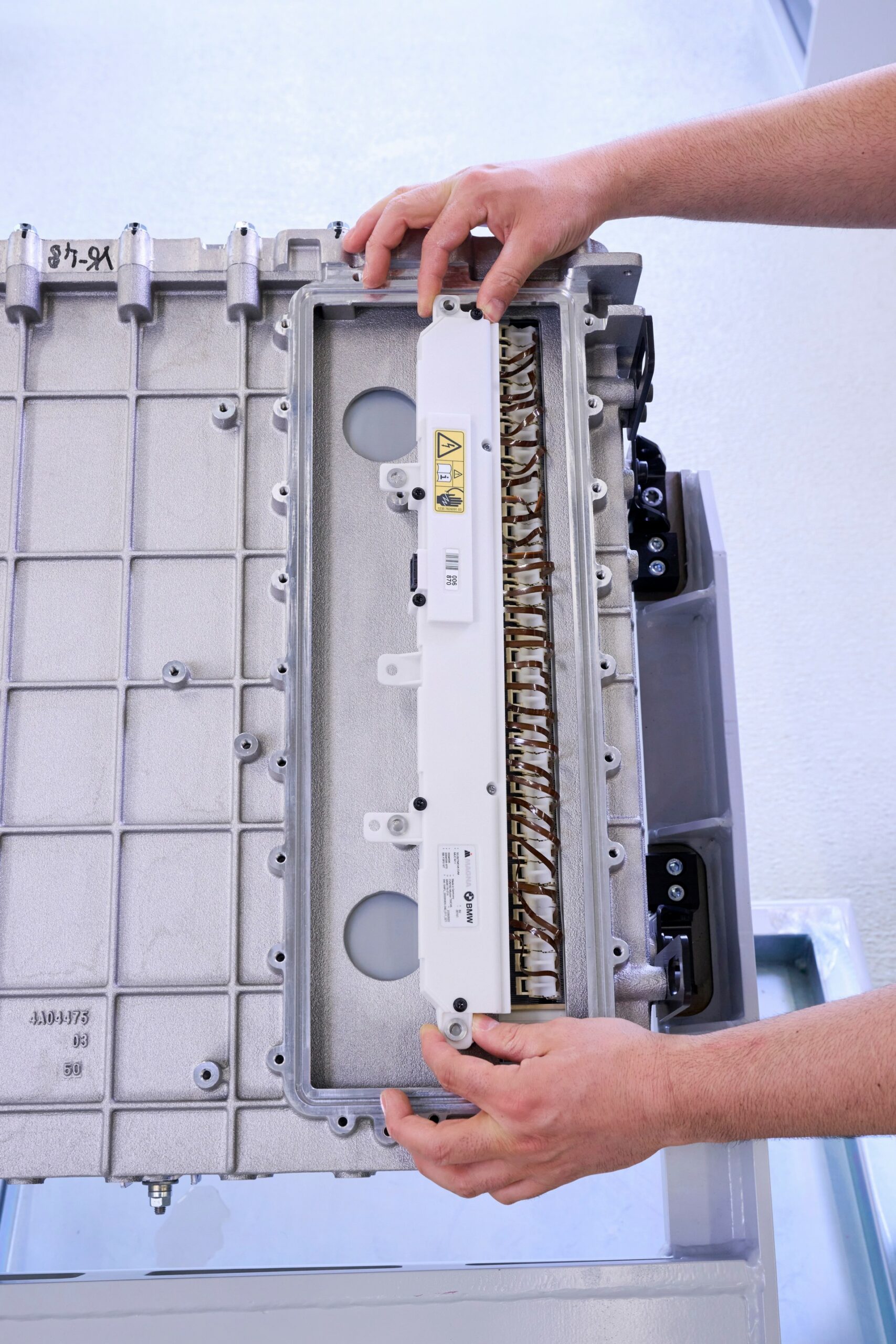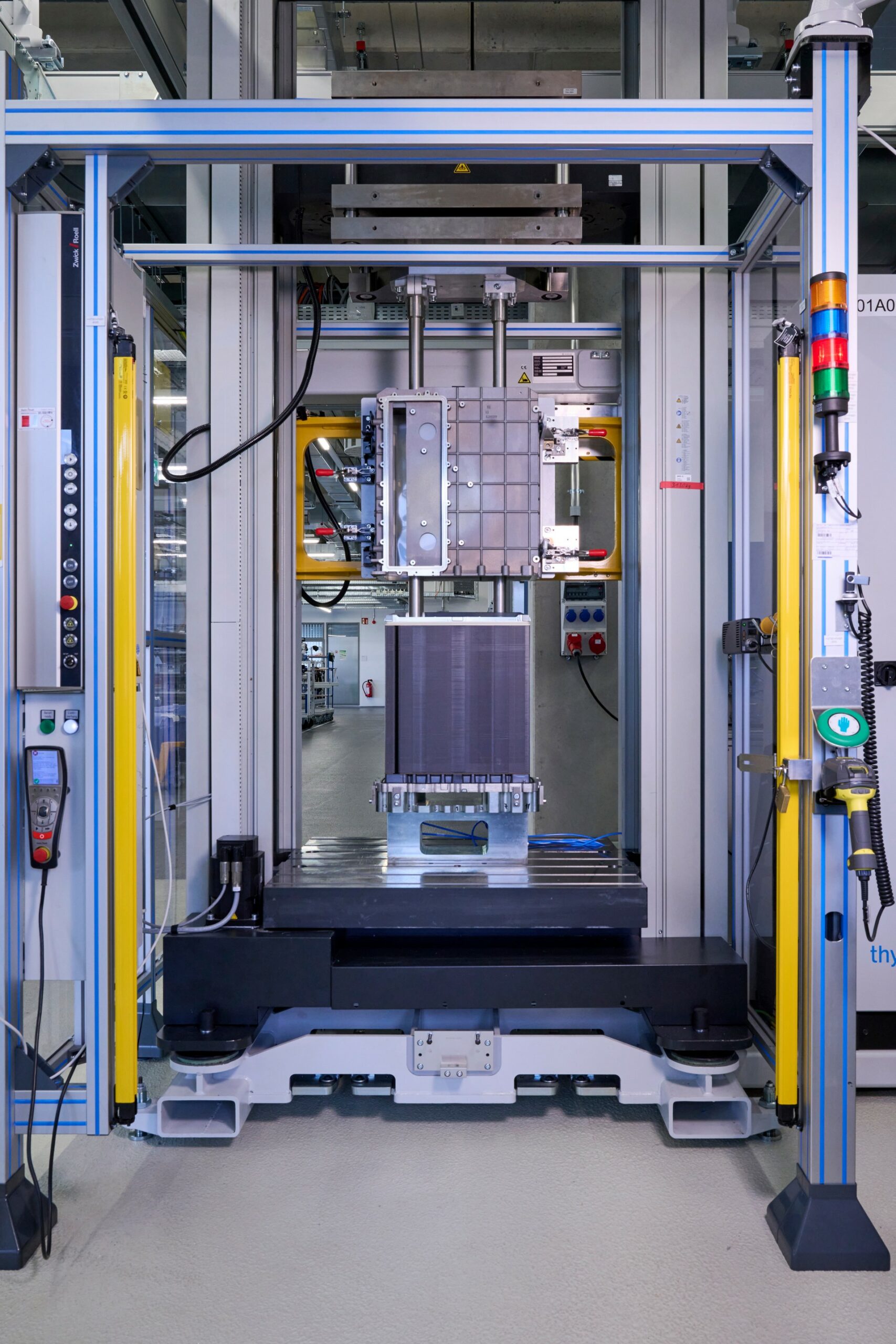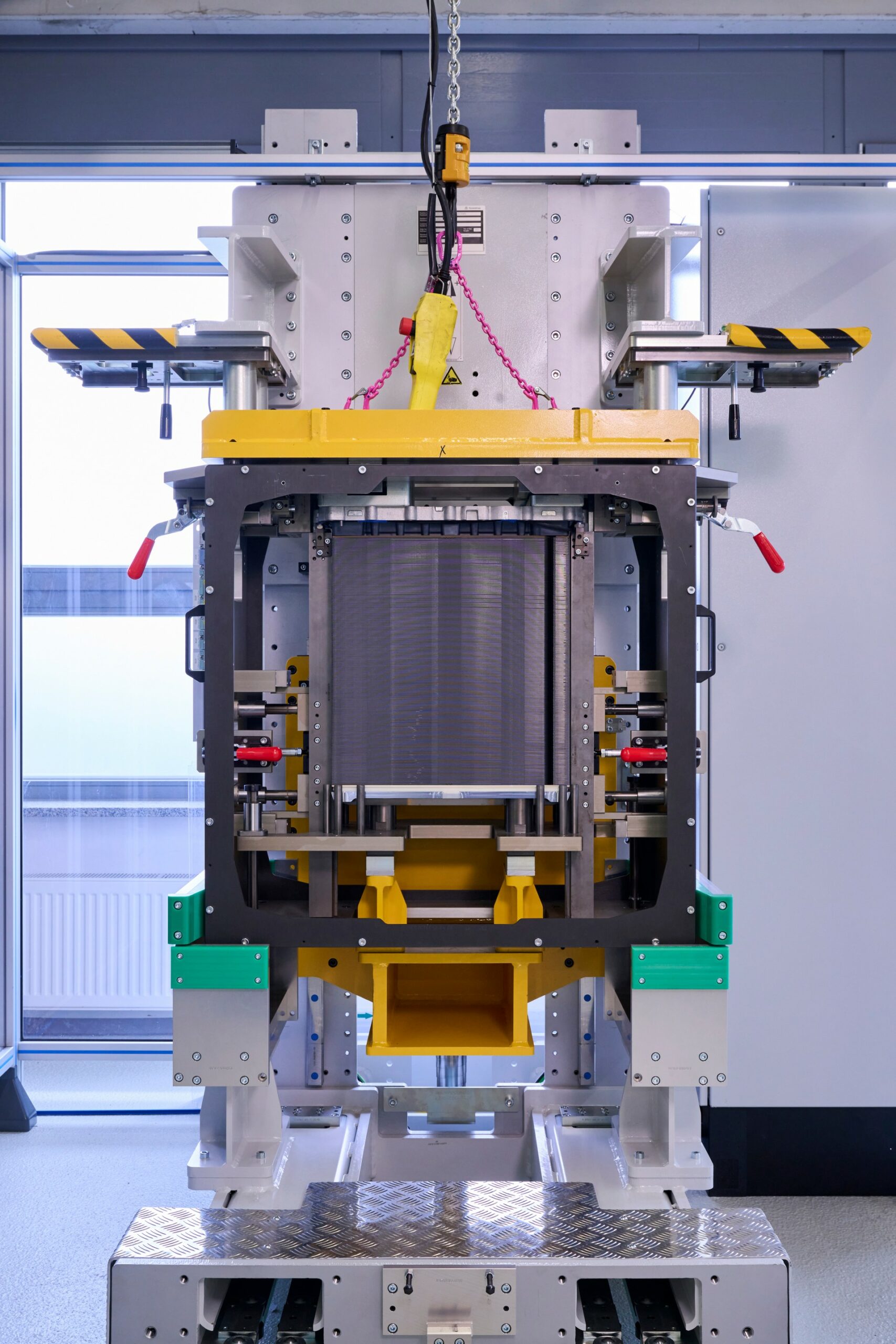For awhile, it seemed like hydrogen would be the fuel of the future. However, that now seems unlikely as automakers have embraced battery electric vehicles.
Despite the shift, a handful of companies aren’t giving up on hydrogen. Hyundai and Toyota are among the fuel’s biggest proponents, but they’re not alone as BMW is also investing in fuel cells.
That’s clear once again as the automaker has inaugurated fuel cell system production at their hydrogen competence center in Munich. The system will be installed in a small fleet of iX5 Hydrogen crossovers that will be used for testing and demonstration purposes starting later this year.
Also Read: New BMW iX5 Hydrogen Brings Its Fuel Cells To Munich
The crossover’s powertrain consists of a fuel cell stack that is fed by two hydrogen tanks. The former creates a chemical reaction when hydrogen is combined with oxygen from the air and this generates electricity, which charges a high-performance battery. The battery then powers an electric motor that generates 368 hp (275 kW / 374 PS) and enables the crossover to be driven without harmful emissions.
While that’s an overly simplistic explanation of the powertrain, BMW noted the individual fuel cells come from Toyota and stated the “two companies have enjoyed a partnership characterized by trust for many years and have been collaborating on fuel cell drive systems since 2013.”
In a statement, BMW Chairman Oliver Zipse said that “Hydrogen has a key role to play on the road to climate neutrality.” He added that the automaker believes “hydrogen-powered vehicles are ideally placed technologically to fit alongside battery-electric vehicles and complete the electric mobility picture.”
Previous reports have suggested BMW may offer hydrogen-powered production models and that seems possible as the automaker noted the technology holds “great promise for its next generation of vehicles.”




